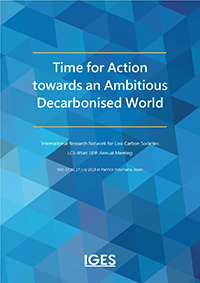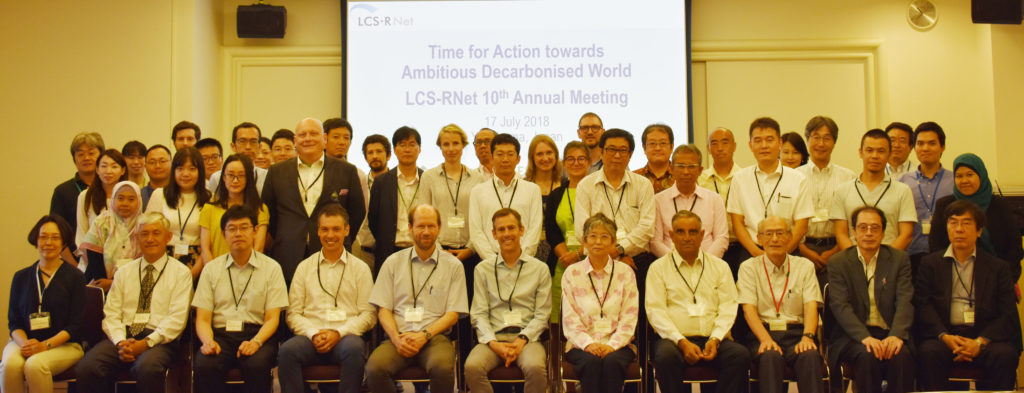10th Annual Meeting of the LCS-RNet in Yokohama, Japan
|
■ Date and Time: 9:00-17:30, 17 July 2018
■ Venue: Pacifico Yokohama (Room #311, 312 and 313)
■ Organisers: Ministry of the Environment, Japan; Institute for Global Environmental Strategies (IGES); and National Institute for Environmental Studies (NIES)
■ Language: English only
You can download the Policy Report developed based on the last year’s LCS-RNet 9th Annual Meeting in Warwick, UK from HERE
|
 PDF (9.4MB) PDF (9.4MB) |
■ Main theme of the 10th annual meeting
Time for action towards an ambitious decarbonised world
The Talanoa Dialogue was started in order to gain an understanding of the reduction in greenhouse gas emissions on a global scale and to examine the increased ambition towards a decarbonised world. Trends show that various actions must be implemented urgently to achieve decarbonised societies. NDCs are certainly the first step, but they are not sufficient to realise 1.5/2 °C targets. What is required are more ambitious GHG reduction scenarios, roadmaps and actions to achieve zero-carbon. In this regard, at the annual meeting, we will share proposed actions towards an ambitious decarbonised world in various regions and sectors, and we will discuss how to implement these actions effectively.
■ Background idea of four breakout sessions
(1-A) 1.5/2 degree targets and long-term low-carbon global development strategies
1.5 °C target and 2 °C target are the main goals of the Paris Agreement, but the present NDCs are insufficient. In order to realise the above goals, more ambitious targets are requested globally. One of these efforts is “long-term low-carbon development strategy”, and another is the Talanoa Dialogue as a precedent of the global stocktake. We will discuss implementation of these actions from a long-term perspective.
(1-B) Impact and adaptation
GHG mitigation actions are essential to realise a decarbonised world, but actions related to adaptation will also be needed to ensure sustainable decarbonisation. Through the discussion in this breakout session, we will share advanced actions related to adaptation.
(2-A) Innovation and transition
The breakout session will feature discussion on what kind of innovation is needed to implement the actions. This includes not only technological innovation, but also institutional innovation with regards to lifestyle among others.
(2-B) Actions in the developing world
The actions in developing countries will be the key to achieving a decarbonised world, because it is expected that GHG emissions from the developing countries will increase more rapidly than those in developed countries. Discussion points include what kind of actions are requested in the developing countries, how the actions will be promoted, and how developed countries can support those actions in developing countries.
■ LCS-RNet 10th Annual Meeting Programme and Presentations


